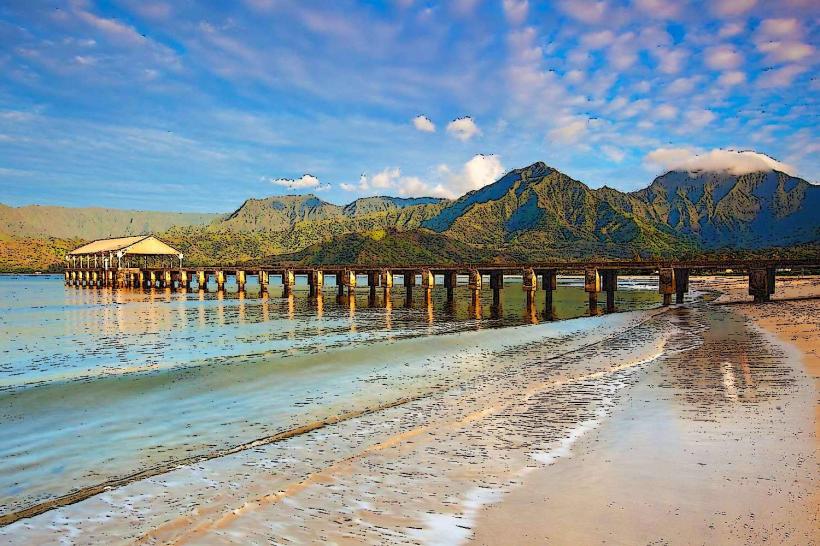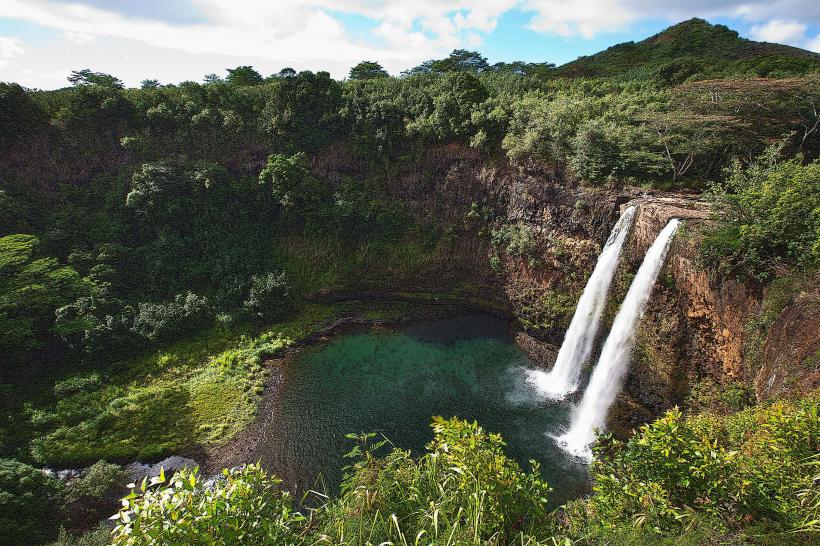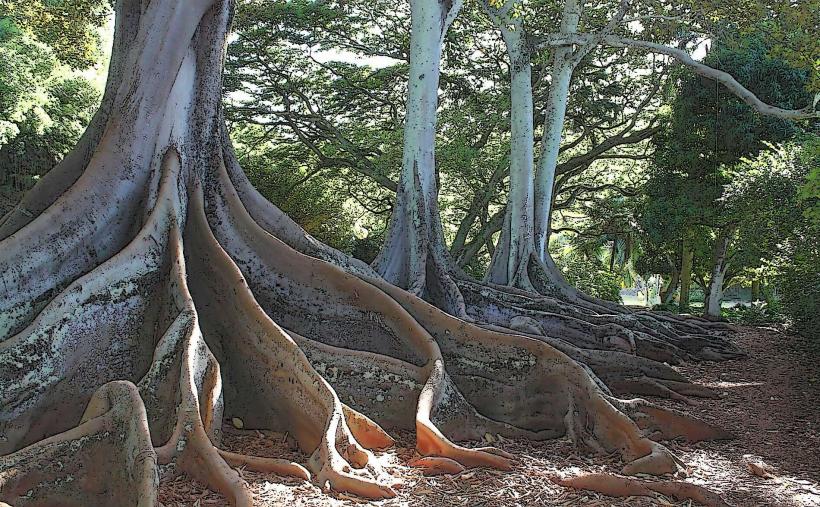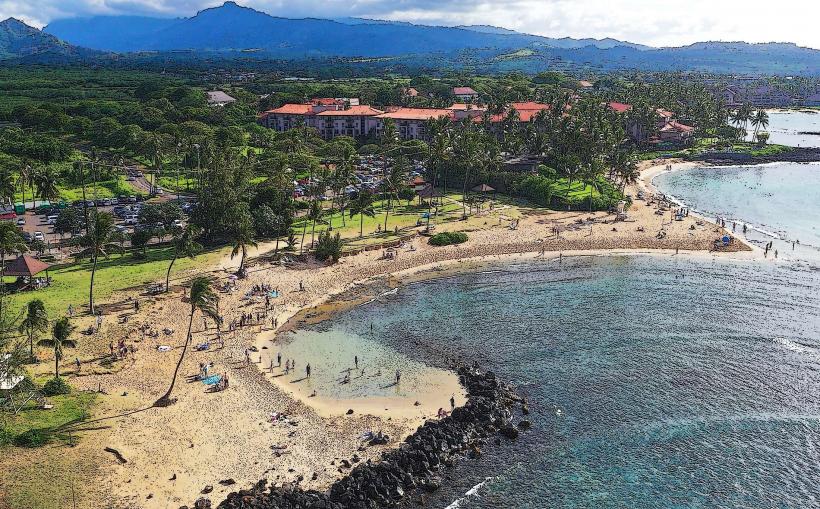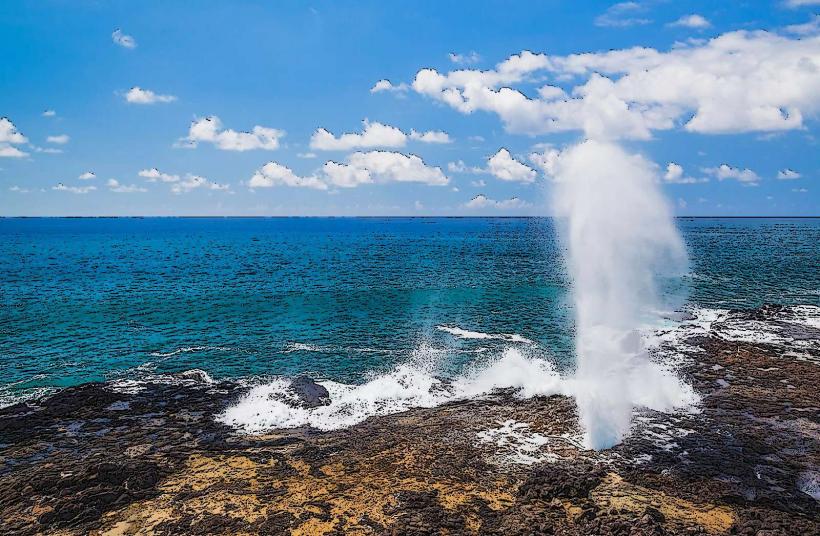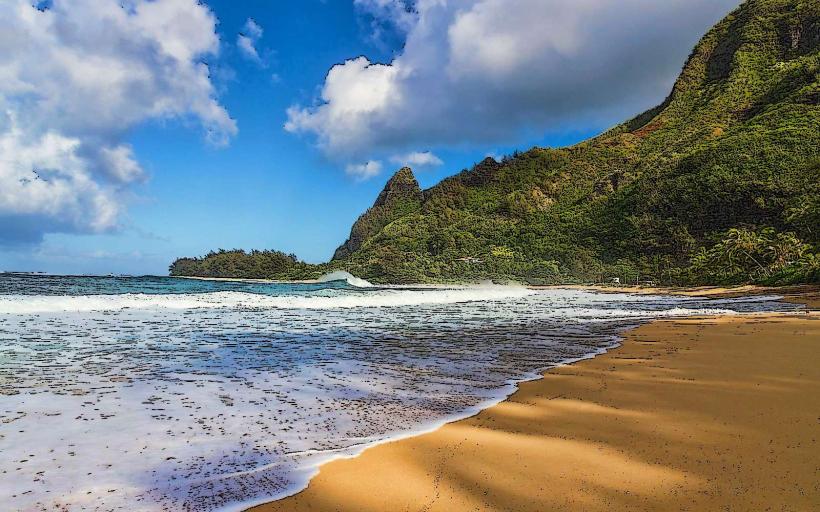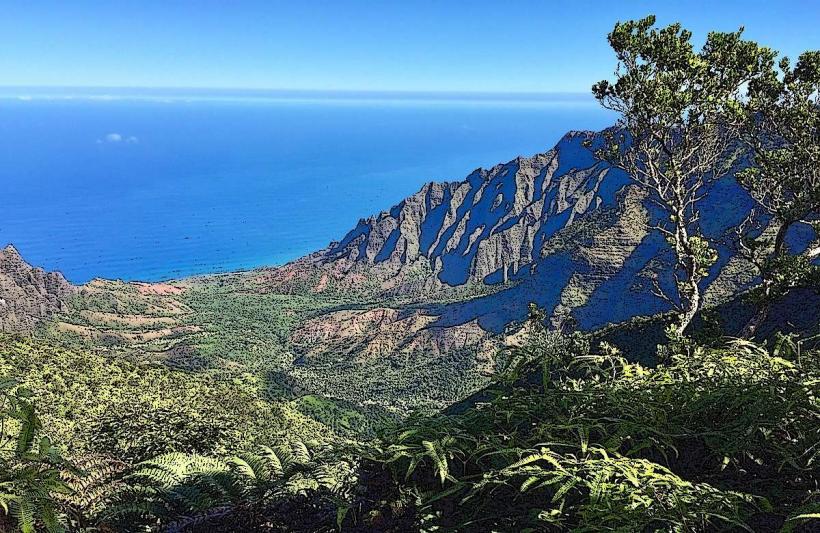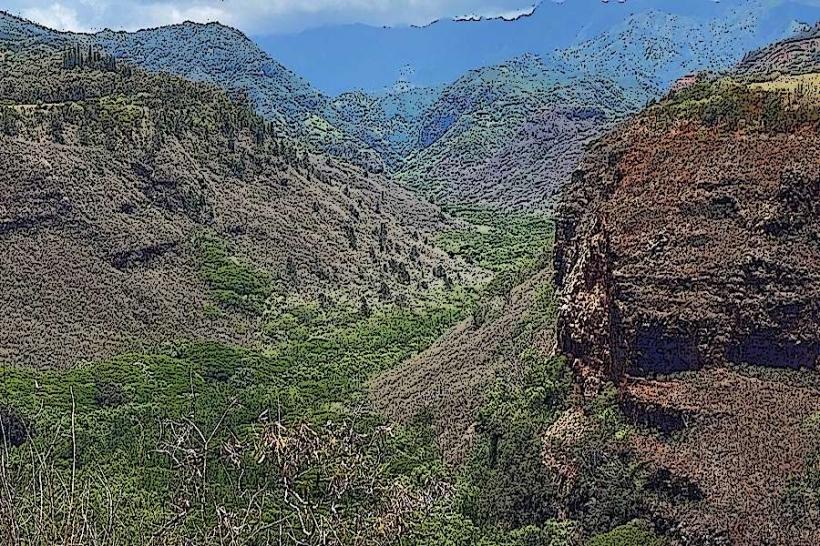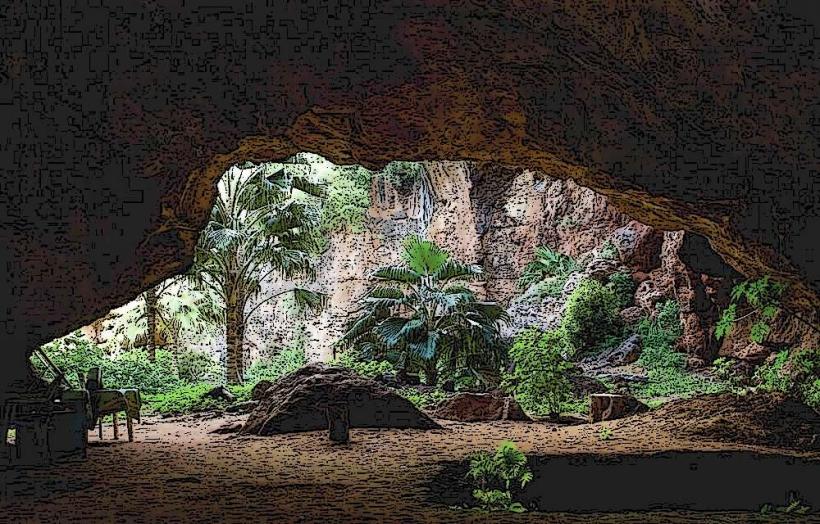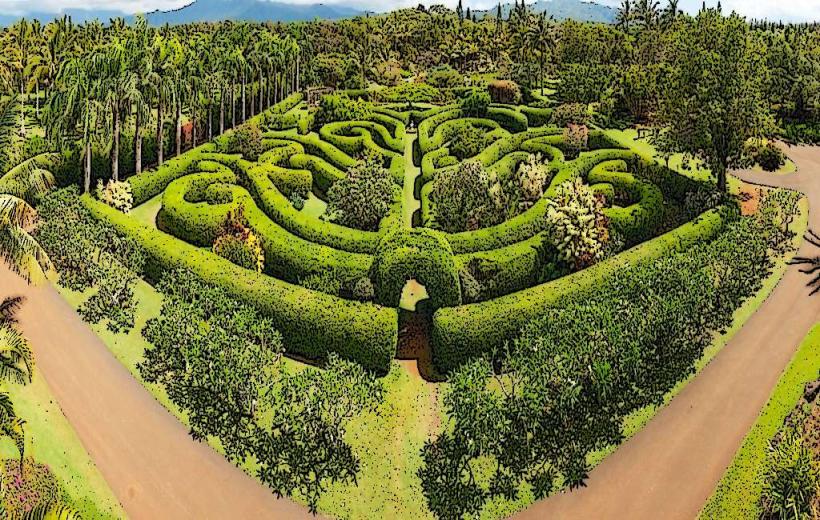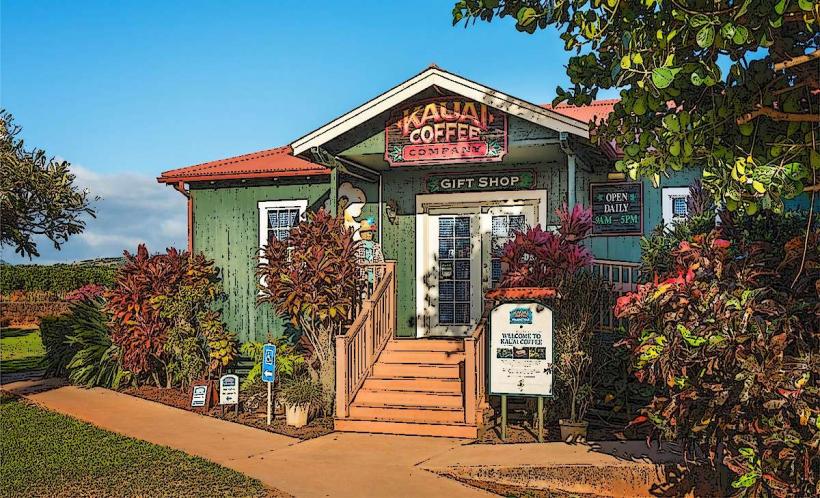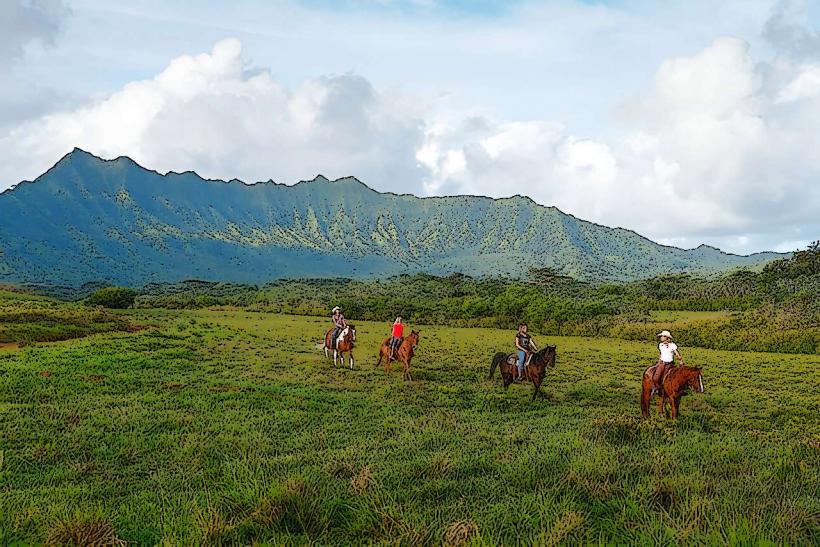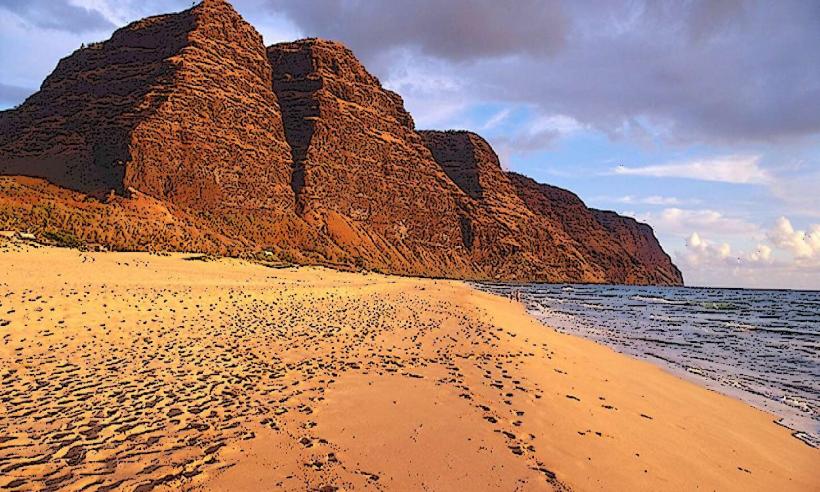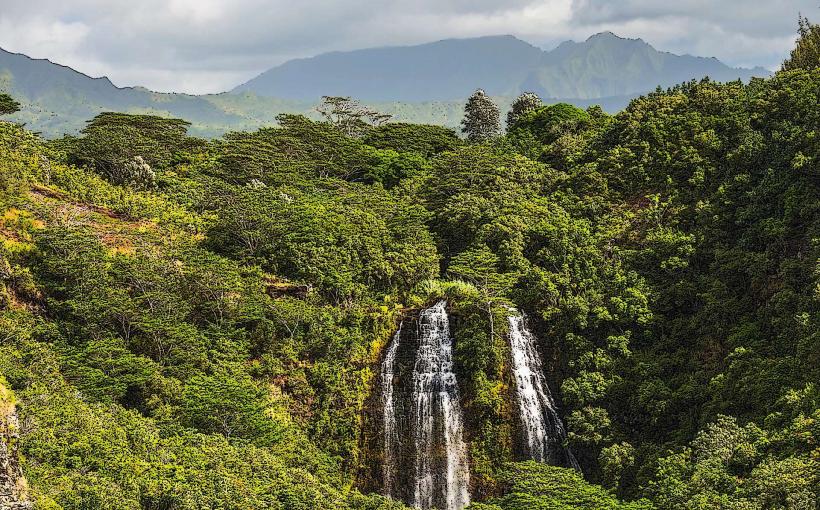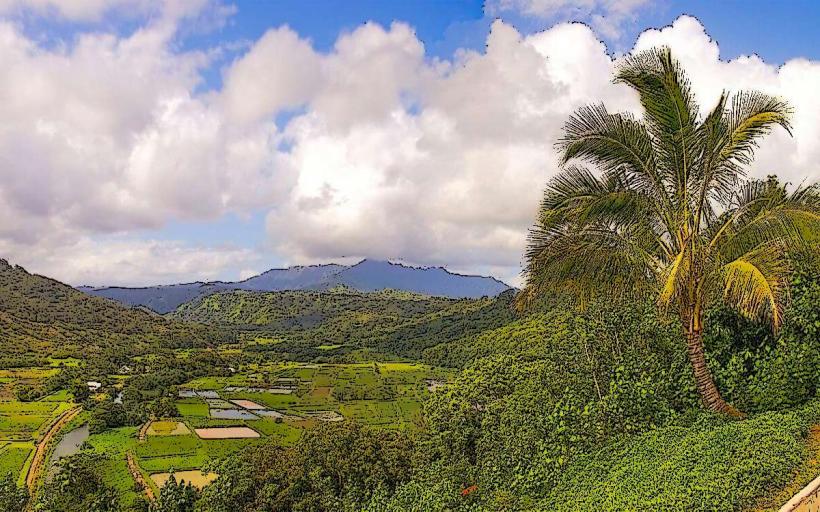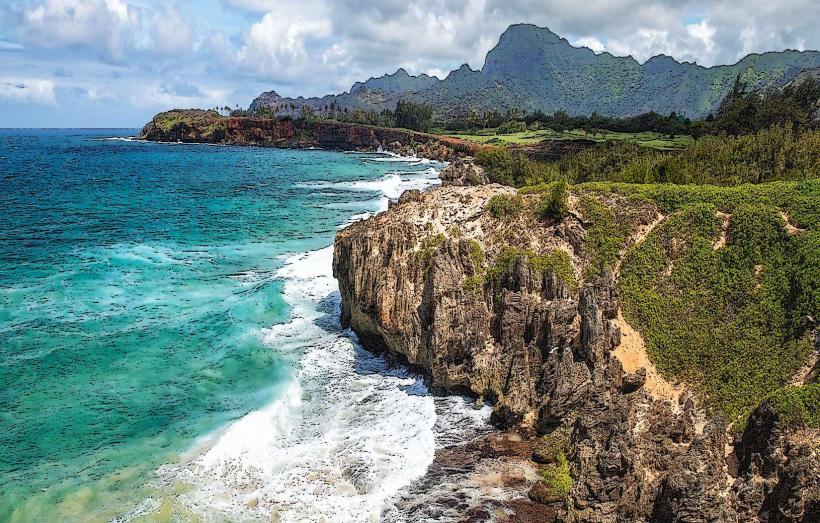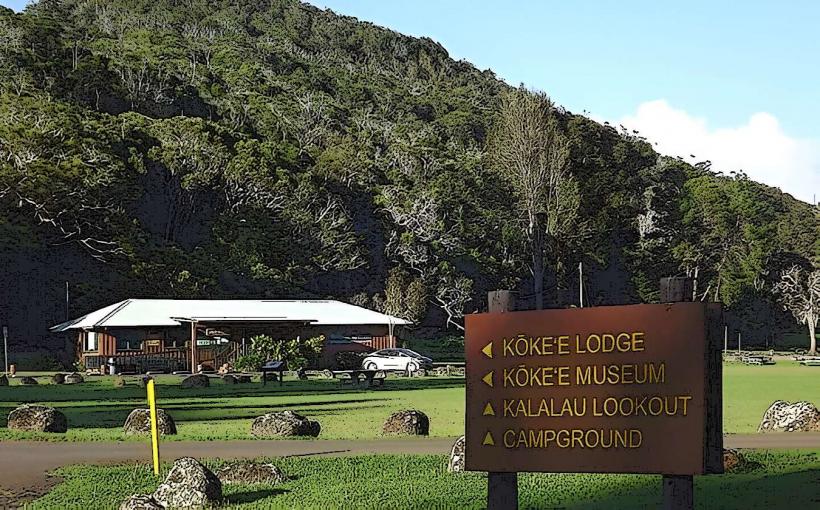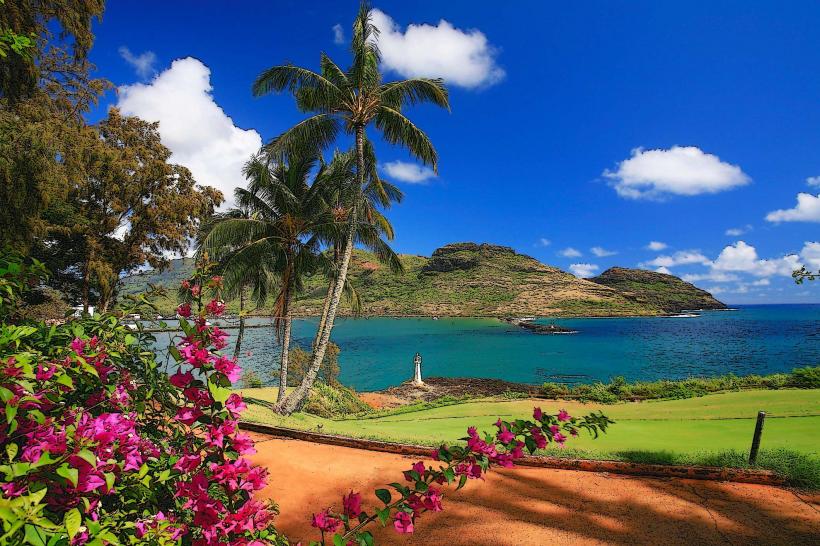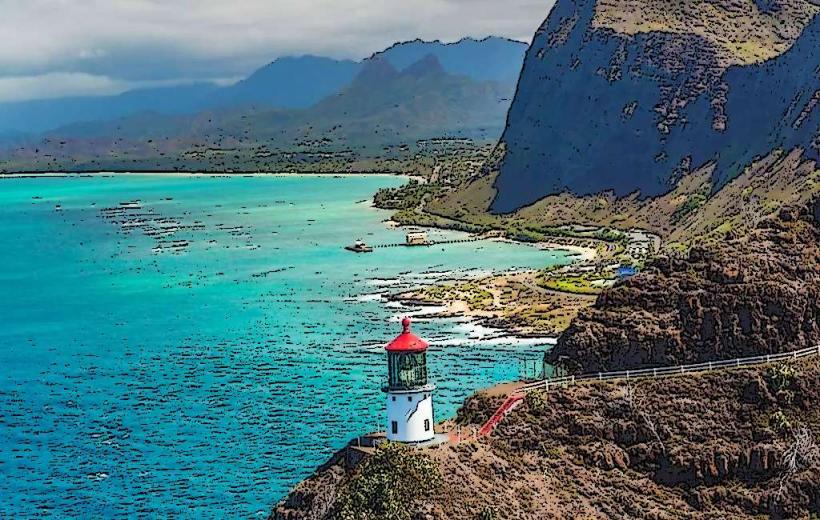Information
Landmark: Limahuli Garden and PreserveCity: Kauai
Country: USA Hawaii
Continent: North America
Limahuli Garden and Preserve, Kauai, USA Hawaii, North America
Limahuli Garden and Preserve is a botanical garden and conservation area located on the north shore of Kauai, Hawaii, USA.
It preserves native Hawaiian plants and ecosystems within a valley setting.
Visual Characteristics
The garden features a steep-sided valley with a stream running through it. Vegetation is dense, comprising native Hawaiian flora including endemic trees, shrubs, and ferns. Terraced agricultural plots, constructed from volcanic rock, are visible on the valley slopes. The stream water is typically clear, flowing over dark volcanic rocks.
Location & Access Logistics
Limahuli Garden and Preserve is situated at 5700 Ka Haku Road, Hanalei, Kauai, HI 96714. It is approximately 30 kilometers (18.6 miles) west of Lihue Airport. Access is via Highway 56 North, turning onto Kuhio Highway (Route 560) towards Hanalei. Continue on Kuhio Highway to Ka Haku Road. Parking is available on-site. No public transport directly serves the garden; private vehicle or taxi is required.
Historical & Ecological Origin
The valley was historically a significant agricultural center for native Hawaiians, evidenced by the ancient agricultural terraces. The Limahuli stream is a vital water source for the valley's ecosystem. The preserve was established to protect and restore native Hawaiian plant species and their habitats, many of which are endangered.
Key Highlights & Activities
Visitors can walk designated trails through the garden to observe native plants. Educational signage provides information on plant species and their cultural significance. Guided tours are available, offering in-depth explanations of the garden's history and ecology. Observation points offer views of the valley and coastline.
Infrastructure & Amenities
Restrooms are available at the visitor center. Limited shaded areas are present along some trails. Cell phone signal is generally weak to non-existent within the valley. No food vendors are located within the preserve; visitors should bring their own provisions.
Best Time to Visit
The best time of day for photography is generally mid-morning or late afternoon when the sun angle provides softer light. The best months for weather are typically April through October, with lower rainfall. The garden is accessible year-round, with no tide-dependent restrictions.
Facts & Legends
The name "Limahuli" translates to "hiding hand" in Hawaiian, possibly referring to the valley's secluded nature. Ancient Hawaiians cultivated taro (kalo) in the valley's terraces, a staple food source. The preserve actively works to reintroduce native bird species to the valley.
Nearby Landmarks
- Hanalei Bay (1.5km Northwest)
- Hanalei Pier (1.8km Northwest)
- Kilauea Lighthouse (10km East)
- Wailua River State Park (35km Southeast)
- Poipu Beach (60km Southwest)


